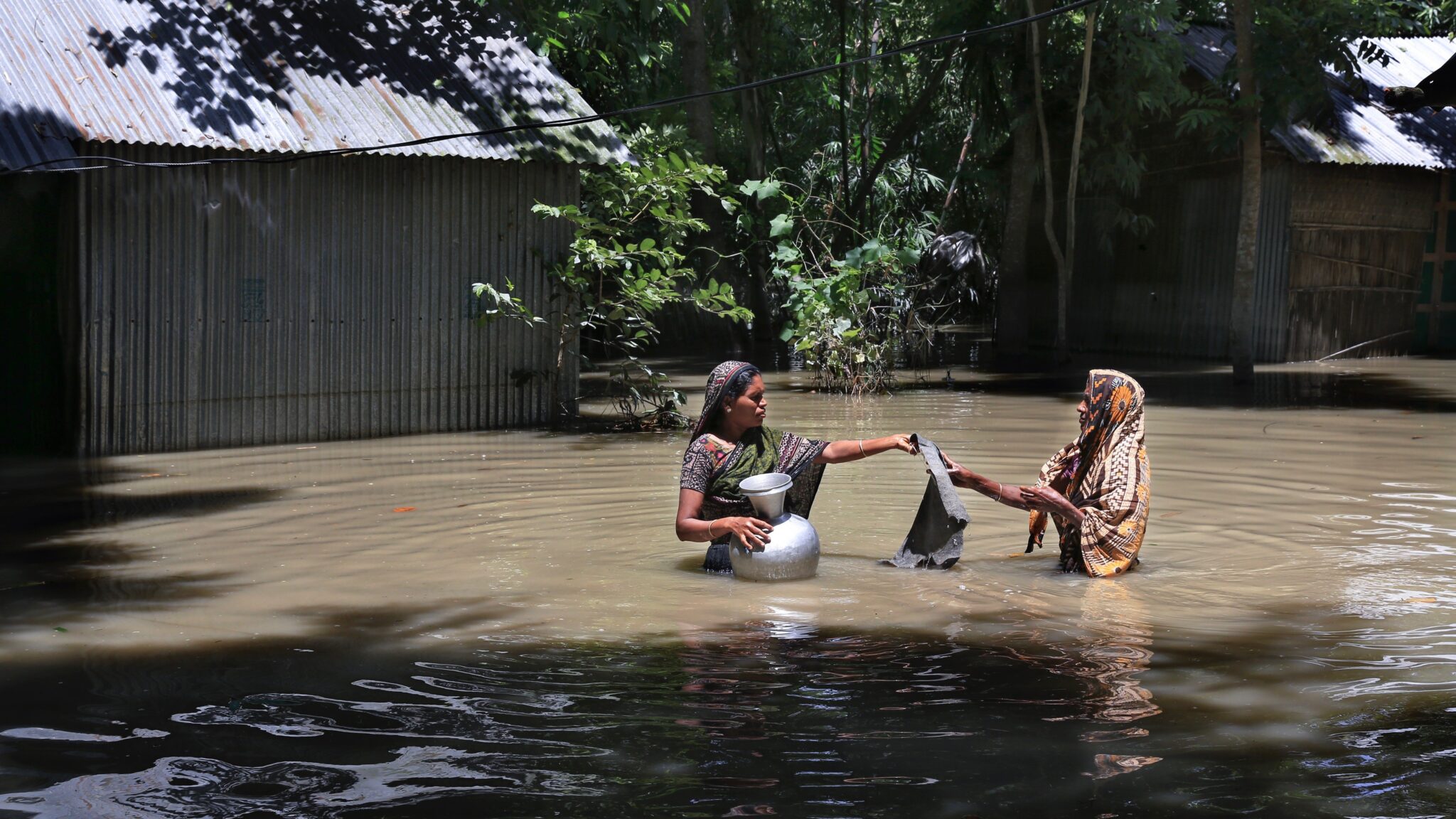

If temperatures continue to rise, the world is at risk from global sea-level rise, which will flood many coastal cities as seen above in Bangladesh. NurPhoto / Contributor / Getty Images
The mounting climate emergency may spur the next global financial crisis and the world’s central banks are woefully ill equipped to handle the consequences, according to a new book-length report by the Bank for International Settlements (BIS), as S&P Global reported. Located in Basel, Switzerland, the BIS is an umbrella organization for the world’s central banks.
The report, titled The Green Swan, which plays on the idea of a “black swan” even warned that the climate crisis could have a potentially seismic effect on the world’s financial system and that central banks do not have the tools to handle it, as Reuters reported.
“Climate change poses unprecedented challenges to human societies, and our community of central banks and supervisors cannot consider itself immune to the risks ahead of us,” François Villeroy de Galhau, governor of the Banque de France, said in the report, as The New York Times reported.
The world’s markets are in a bind. To limit global warming to less than 1.5 degrees Celsius requires leaving a large proportion of fossil fuel reserves in the ground, which creates a potential risk for the value of energy companies and the broader financial system. Yet, extracting those fossil fuels will almost surely push the world past the 1.5 degrees Celsius threshold, as S&P Global reported.
If temperatures continue to rise, the world is at risk from global sea-level rise, which will flood many coastal cities, while brutal droughts will make other parts of the world uninhabitable, as Reuters reported.
Already, the world has the number of extreme weather events quadruple of the last four decades. The report warns that the financial markets are not protected against climate-induced losses. Only 44 percent of the write-downs caused by extreme weather events are now covered in the U.S. In Asia it’s just 8 percent and in Africa only 3 percent, according to Reuters.
“I think we might be on the brink of observing something that might be behind the next systemic financial crisis,” Luiz Awazu Pereira Da Silva, one of the book’s main authors, told reporters, as Reuters reported.
The report also warned that central banks, which spent the last decade pulling their countries out of a deep financial crisis, may spend the next decade coping with disruptions from the climate crisis, as The New York Times reported.
The paper warned that central banks may be called on to bail out many communities that are devastated by climate emergencies.
“In the worst-case scenario, central banks may have to confront a situation where they are called upon by their local constituencies to intervene as climate rescuers of last resort,” the report said. “Fundamentally, climate-related risks will remain largely uninsurable or unable to be hedged as long as system-wide action is not taken.”
The European Central Bank is starting to grapple with climate-related issues, according to The New York Times. The new president of the European Central Bank has pledged to put the climate crisis at the forefront of the bank’s decisions.
“While we might not be ahead of the curve yet, we are not sitting on our bottoms doing nothing,” Ms. Lagarde said during a news conference on Thursday, as The New York Times. “It is going to be an important matter that will be debated during the strategy review.”
She noted that bank’s employee pension fund is shifting investment to companies with lower carbon dioxide emissions.
Environmental activists who have campaigned to divest from fossil fuels took to Twitter to highlight the report’s findings. Bill McKibben, the founder of 350.org, rewrote The New York Times headline “Climate Change Could Cause the Next Financial Meltdown.” Instead, he edited it to, “Financial Systems Could Cause the Next Financial Meltdown,” as Common Dreams reported.
Since the banks fund the fossil fuel system, this is really a way of saying 'Financial systems Could Cause the Next Financial Meltdown.' Unless we #stopthemoneypipeline https://t.co/FvfSmry4eg
— Bill McKibben (@billmckibben) January 23, 2020
“Since the banks fund the fossil fuel system, this is really a way of saying ‘Financial systems Could Cause the Next Financial Meltdown.’ Unless we #stopthemoneypipeline,” McKibben tweeted.
The report, to its credit, noted that a new level of global cooperation is required, as Reuters reported.
“A new global financial crisis triggered by climate change would render central banks and financial supervisors powerless,” the BIS said. “We cannot be the only game in town.”
- The Federal Reserve Finally Talks About the Climate Crisis ...
- Pacific Island Nations Declare Climate Crisis, Fear Being ...
- New Zealand Will Consider Climate Crisis in All Major Policy ...
- 5 Ways to Fight the Climate Crisis in 2020 - EcoWatch
- Report Shows Banks Loaned $2.6 Trillion Linked to Biodiversity Loss - EcoWatch

 233k
233k  41k
41k  Subscribe
Subscribe 